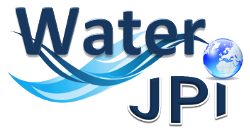Newsletter 2 - 2025
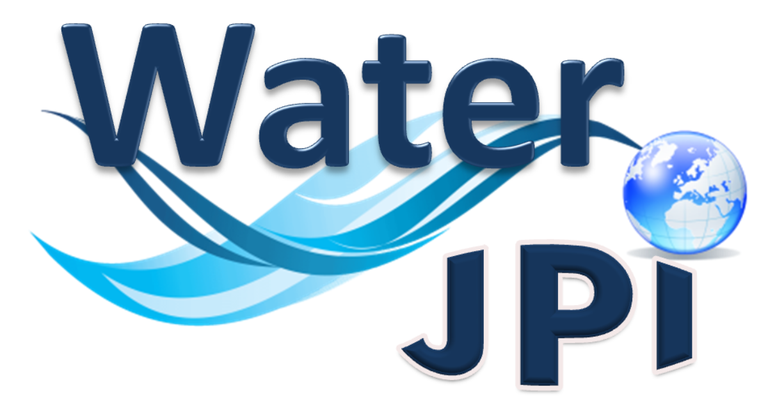
Editorial – Looking Ahead to the Final Stages of the Water JPI
As the Water Joint Programming Initiative (Water JPI) approaches its last operational activities, I am delighted to announce the Final Conference of the initiative, which will take place on October 23–24 at the University of Málaga, Spain.
...
As the Water Joint Programming Initiative (Water JPI) approaches its last operational activities, I am delighted to announce the Final Conference of the initiative, which will take place on October 23–24 at the University of Málaga, Spain.
Supported by the European Commission and currently bringing together funding agencies from 16 countries, Water JPI has, over the past years, embodied a truly collaborative effort to advance sustainable water management through research and innovation. By aligning national priorities and pooling resources, the initiative has facilitated transnational cooperation, co-funded strategic projects, and promoted the exchange of scientific and technical knowledge to tackle Europe’s and the world’s most pressing water challenges.
This final conference is more than a celebration of achievements—it is a moment of reflection and renewed ambition. It will offer a space to showcase the main outcomes of the initiative, to engage in dialogue on future water-related policy priorities, and to strengthen connections between science, innovation, and policy-making at both local and regional levels.
The Water JPI Final Conference will be held back-to-back with the Final Conference of the BiodivRestore project, creating a unique opportunity to explore synergies between the water and biodiversity research communities. This joint momentum reflects our shared commitment to integrated, cross-sectoral approaches to sustainability challenges.
As we prepare for this concluding event, we also take a moment to look back at key activities carried out during the first semester of 2025. Notably, we celebrated the official launch of the SD-WISHEES Thematic Annual Programming (TAP), a significant milestone that brings together projects from France, Greece, Malta, Moldova, and Romania to collaboratively address hydroclimatic extreme events and their impacts on cultural heritage. In parallel, we have initiated an impact assessment of Water JPI funded projects, a crucial effort to evaluate the outcomes of our joint investments. This work will continue within the broader framework of the Water4All Partnership, ensuring that the legacy and learning of Water JPI continue to inform future European research and innovation agendas.
We will be particularly honored to count on the University of Málaga as host of this important event. We look forward to welcoming the Water JPI community and all key stakeholders in Málaga, as we reflect on the path travelled and look forward to future collaborative efforts toward resilient, inclusive, and sustainable water management.
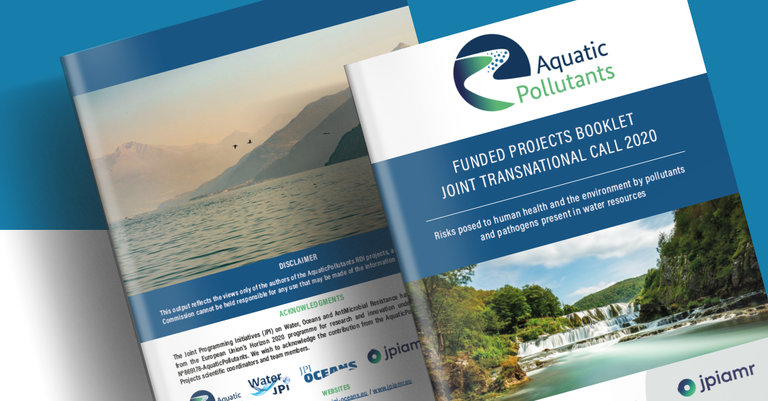
AquaticPollutants Final Brochure – A Snapshot of Impactful Research for Healthy Waters
The AquaticPollutants ERA-NET Cofund was launched with an ambitious vision: to advance our understanding and response to pollutants and pathogens in aquatic environments. It unfolded through two complementary Joint Calls that together enhanced both ...
The AquaticPollutants ERA-NET Cofund was launched with an ambitious vision: to advance our understanding and response to pollutants and pathogens in aquatic environments. It unfolded through two complementary Joint Calls that together enhanced both scientific innovation and real-world impact.
The main call, the 2020 Joint Transnational Call, funded 18 collaborative research and innovation projects. These projects explored the interconnected themes of measuring, evaluating, and taking action on the risks posed by emerging pollutants and pathogens in water resources. From improving detection technologies to assessing ecological and health risks, and developing mitigation strategies, the projects brought together interdisciplinary teams across Europe to tackle one of today’s most pressing environmental challenges.
A second call, launched in parallel, supported a single Transfer Project—AquaticPollutantsTransNet. Its mission was to amplify the visibility, uptake, and impact of the research results produced by the funded consortia. Through knowledge transfer activities, stakeholder engagement, and targeted communication, the Transfer Project played a key role in bridging science and policy and in helping to align project outcomes with societal and regulatory needs.
With the initiative now concluded, the newly released AquaticPollutants Final Brochure provides a comprehensive overview of the projects' motivations, methodologies, key findings, and forward-looking perspectives. It offers readers a rich synthesis of how collaborative science can inform better water management and protect both environmental and human health.
In September 2024, the AquaticPollutants initiative came to a close with a vibrant Final Conference in Frankfurt, Germany. Hosted by DECHEMA, the event brought together researchers, policymakers, and water management experts to explore the programme’s achievements, share key research outcomes, and reflect on future directions. The discussions and exchanges that took place underscored the importance of continued collaboration in shaping healthier aquatic environments and turning scientific knowledge into impactful solutions.
Download the AquaticPollutants Final Brochure here
We invite you to explore the brochure and discover how the AquaticPollutants ERA-NET Cofund helped turn joint programming into impactful action.
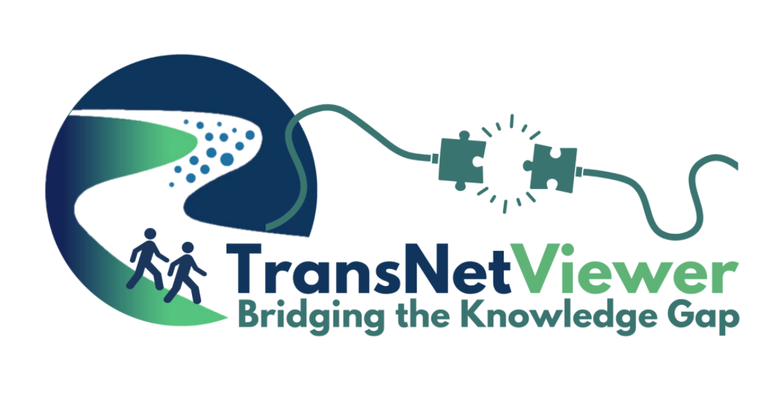
AquaticPollutants TransNetViewer
The TransNetViewer, developed under the AquaticPollutants Transfer Project TransNet, is now available and marks a major step forward in making aquatic contaminants research more accessible and actionable. Designed to serve as a bridge between ...
The TransNetViewer, developed under the AquaticPollutants Transfer Project TransNet, is now available and marks a major step forward in making aquatic contaminants research more accessible and actionable. Designed to serve as a bridge between scientists and end-users—such as water utilities, regulators, industry, and solution providers—the tool supports the transfer of knowledge on chemicals of emerging concern (CECs), antimicrobial resistance (AMR), and pathogens in the water cycle.
At its core, TransNetViewer synthesizes stakeholder knowledge needs gathered from extensive consultations across the aquatic pollutant community. It allows researchers to understand what different stakeholder groups are really looking for—what types of information, tools, and results are most relevant to their operations and decision-making. This helps shape the way scientific results are framed and communicated, ensuring that research is aligned with real-world demands.
The platform also promotes effective communication strategies by identifying the best channels to reach various audiences and recommending formats tailored to each group’s expectations. Researchers, in turn, can use the insights from TransNetViewer to boost the societal impact and visibility of their work, enhancing collaboration between the science community and water-sector professionals across Europe.
TransNetViewer reflects strong collaboration between the German Federal Ministry of Education and Research (BMBF), the French National Research Agency (ANR), and the Swedish Research Council for Sustainable Development (Formas), under the Horizon 2020 ERA-NET Cofund AquaticPollutants. It stands as a testament to the shared European commitment to tackling pollution through integrated knowledge and joint solutions.
More on the TransNetViewer: https://aquatic-pollutants.eu/Resources/TransNetViewer.html
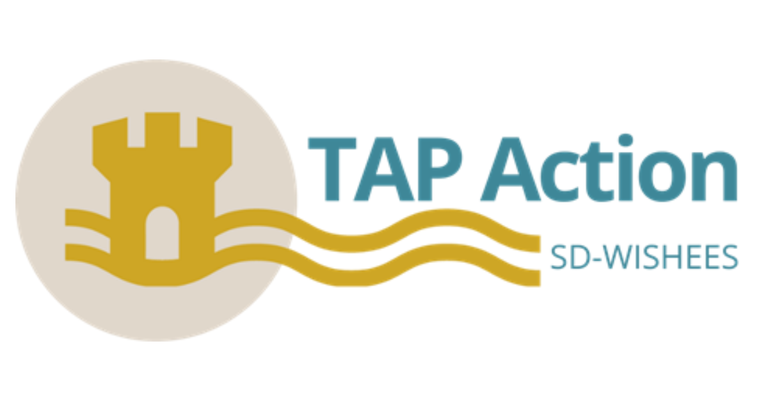
Discover the SD-WISHEES TAP Action
SD-WISHEES initiative has launched its Thematic Annual Programming (TAP) actioCultural heritage faces growing threats from climate-driven extreme events—floods, droughts, and erosion that compromise not only physical sites but also the knowledge and ...
SD-WISHEES initiative has launched its Thematic Annual Programming (TAP) actioCultural heritage faces growing threats from climate-driven extreme events—floods, droughts, and erosion that compromise not only physical sites but also the knowledge and identity they carry. To address these challenges, the SD-WISHEES initiative has launched its Thematic Annual Programming (TAP) action, a collaborative framework bringing together researchers and institutions from across Europe to find sustainable, innovative ways of protecting cultural assets. Two new articles now shed light on the TAP’s origins, goals, and the diverse projects it supports—from restoring ancient water systems in Malta to using 3D tech for medieval site preservation in Romania.
These articles offer a rich view into the work already underway: practical tools, digital strategies, and nature-based solutions that merge tradition and innovation. Whether you’re curious about climate adaptation, heritage conservation, or collaborative science, we invite you to read more and discover how these efforts are shaping resilient futures for our shared cultural legacy.
An example of the work carried out by the TAP members: currently they are working on a survey paper, gathering all their expertise in order to build a paper which will present an overview of the different aspects to studying the way to protect Cultural Heritage against extremes hydroclimatic events.
SD-WISHEES TAP Action: Scientific collaboration for heritage at risk
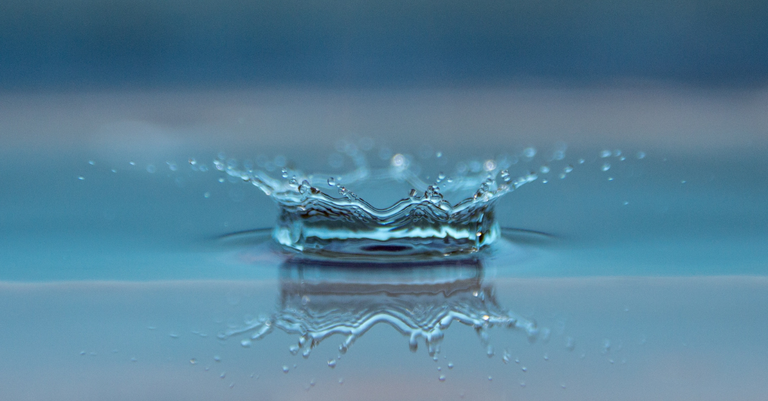
Publication of the European Water Resilience Strategy
The European Water Resilience Strategy is an initiative by the European Commission aimed at strengthening the sustainable management of water resources within the European Union. This strategy primarily seeks to address water scarcity, pollution, ...
The European Water Resilience Strategy is an initiative by the European Commission aimed at strengthening the sustainable management of water resources within the European Union. This strategy primarily seeks to address water scarcity, pollution, and hydrological risks while promoting a circular economy approach and facilitating public and private investments in technologies and infrastructure.
The urgency of this strategy is underscored by recent reports from the European Commission, revealing that the majority of surface water bodies in the EU are polluted. In 2021, only 39.5% were classified as having good ecological status, a decline compared to previous years. This situation highlights the increasing pressure on Europe's water resources, exacerbated by climate change, intensive agriculture, pollution, and urbanization.
The strategy focuses on several key areas, including:
- Water efficiency: Promoting practices and technologies that optimize water use and minimize waste.
- Water pollution: Implementing measures to reduce pollution sources and improve water quality.
- Climate adaptation: Developing strategies to address the impacts of climate change on water resources.
- Financing and pricing models: Ensuring adequate investments and fair pricing models for water management.
- Digital transition and innovation: Encouraging the adoption of digital technologies for improved water management.
- Cross-border cooperation: Strengthening collaboration between EU Member States for integrated water resource management.
More information on the strategy is available here: https://commission.europa.eu/topics/environment/water-resilience-strategy_en
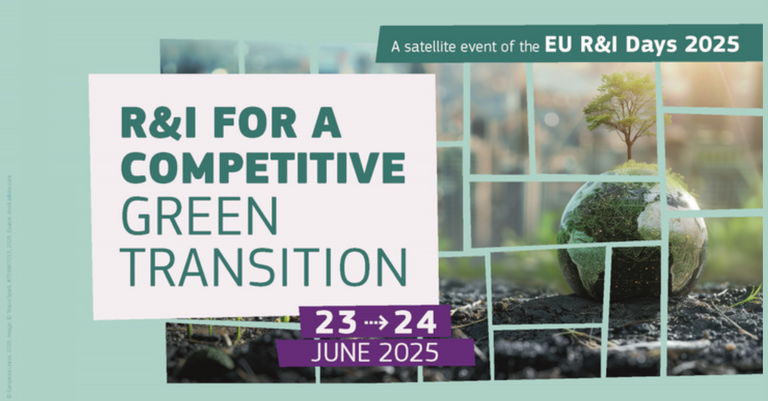
R&I for a Competitive Green Transition
Mark your calendars for "R&I for a Competitive Green Transition", an event organised by DG RTD taking place on 23-24 June 2025 at the Charlemagne building in Brussels. The agenda promises insightful discussions on building alliances through science ...
Mark your calendars for "R&I for a Competitive Green Transition", an event organised by DG RTD taking place on 23-24 June 2025 at the Charlemagne building in Brussels. The agenda promises insightful discussions on building alliances through science in a changing world, tackling green mis- and disinformation, funding avenues for green innovators, nurturing sustainable start-ups and scale-ups, and much more. Secure your spot today!
